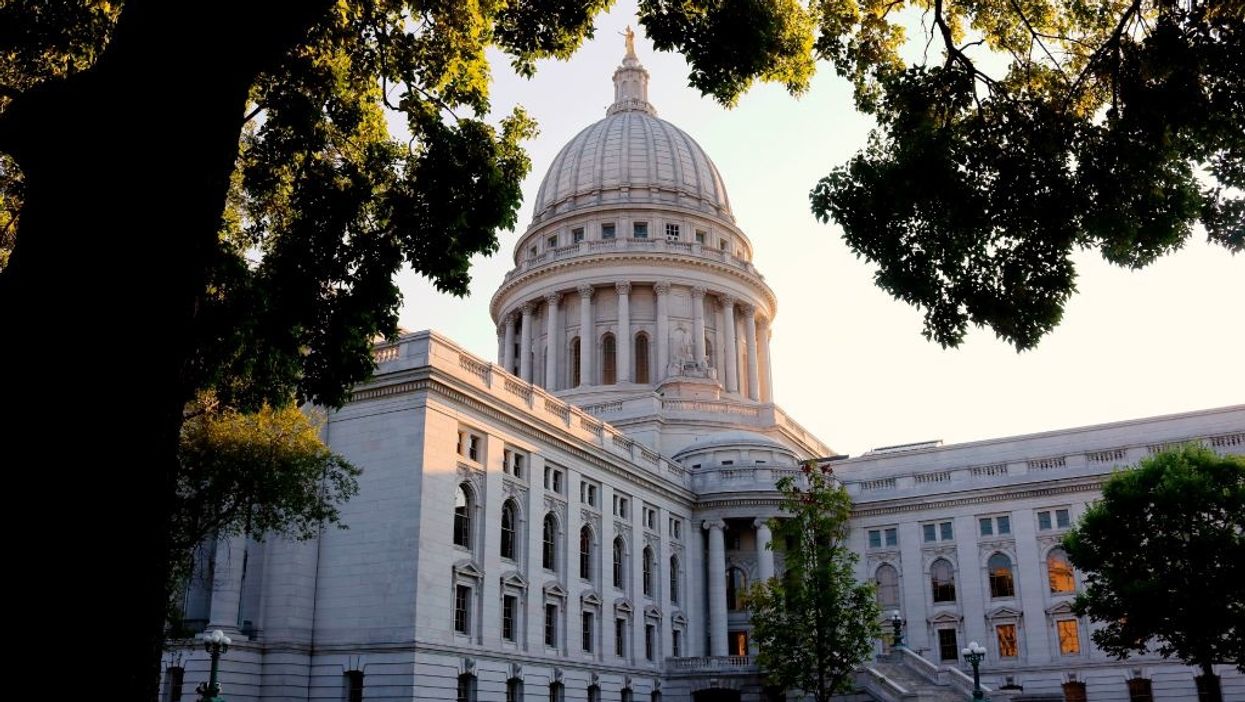
Education Images/Getty Images

The framers made it very clear where this power lies
It's not like the framers of our Constitution or the crafters of federal election law never envisioned the challenge of contested elections and prepared a method for resolution. In fact, they did prepare for this scenario, and they clearly intended for the state legislatures to have the most power to resolve any conflict over the validity of election results.
Last week, I wrote an article reminding Republican-controlled legislative bodies in states with widespread concerns of voter fraud that the Constitution vests in them the ultimate authority to appoint presidential electors. I noted that, because the Constitution allows them to completely bypass a popular vote when selecting those electors, they can certainly decide, if the preponderance of evidence indicates the results are tainted, how they wish to choose those who ultimately cast the ballot for the president.
Several state legislators in key states have reached out to me expressing interest in reclaiming their authority rather than allowing the courts (or worse, the media) to have the final say. However, some have expressed concerns about limitations on their power, given delegated authority that has already passed out of their chambers years ago.
In some states, the legislature cannot convene a special session outside the regular session (typically in January) without the consent of the governor. Lawmakers from these states are concerned that they might not be able to convene without the green light from a Democrat governor who clearly has no interest in further investigating election fraud.
Other legislators have raised questions about whether they can reclaim their constitutional power to select the electors after they have already delegated the authority to the political parties based on the winner of the popular election.
The answer to both of these concerns lies in federal law. 3 U.S.C. §2 states clearly: "Whenever any State has held an election for the purpose of choosing electors, and has failed to make a choice on the day prescribed by law, the electors may be appointed on a subsequent day in such a manner as the legislature of such State may direct."
Thus, even if we accept the argument that legislators cannot abolish popular elections and return to the original practice without passing a new statute (which would require the signature of the governor), that is not what they would be doing here. There has already been a popular election. And assuming the results remain contested and unclear, federal law dictates they alone are responsible for resolving it. Given the existing plenary power to select electors, plus the power of Congress to set the time for voting on them (and Congress gave the authority to the legislators to control that process), it's hard to see how any other state law would supersede such power in this case – at least as it relates to the presidential election.
The fact that any state statute would not supersede the legislature's plenary power of selection of the electors seems clear from the language in the landmark Supreme Court case McPherson v. Blacker (1892). In the unanimous opinion, the court cited an 1874 Senate report, which explained the power as follows:
"The appointment of these electors is thus placed absolutely and wholly with the legislatures of the several states. They may be chosen by the legislature, or the legislature may provide that they shall be elected by the people of the state at large, or in districts, as are members of Congress, which was the case formerly in many states; and it is, no doubt, competent for the legislature to authorize the governor, or the supreme court of the state, or any other agent of its will, to appoint these electors. This power is conferred upon the legislatures of the states by the Constitution of the United States, and cannot be taken from them or modified by their state constitutions any more than can their power to elect senators of the United States. Whatever provisions may be made by statute, or by the state constitution, to choose electors by the people, there is no doubt of the right of the legislature to resume the power at any time, for it can neither be taken away nor abdicated."
Accordingly, we see that even without the federal law, it's clear that such a degree of plenary power cannot be abdicated by state statutes. Therefore, there is never a scenario when they would need the consent of the governor – either to convene or to pass a new statute.
Nobody is saying to rush into this final result. It's the Biden camp that is rushing to short-circuit a count on a style of balloting that necessarily takes several weeks to verify and that he pushed for. What I am suggesting is that the legislatures must convene hearings and investigations to shadow the litigation in court.
Just reading through some of the allegations asserted in a sworn affidavit from GOP poll challenger and former assistant attorney general for Michigan Zachary Larsen, on the alleged fraud he observed in Detroit, is enough to convene a special session in the state of Michigan. Then we have the supposed glitches in numerous states from faulty software. U.S. District Judge Amy Totenberg in Georgia already agreed last month that the new voting system, which is used in many other states, "presents serious security vulnerability and operational issues" caused by "fundamental deficits and exposure. ... These risks are neither hypothetical nor remote under the current circumstances"
Daniel Horowitz
Blaze Podcast Host